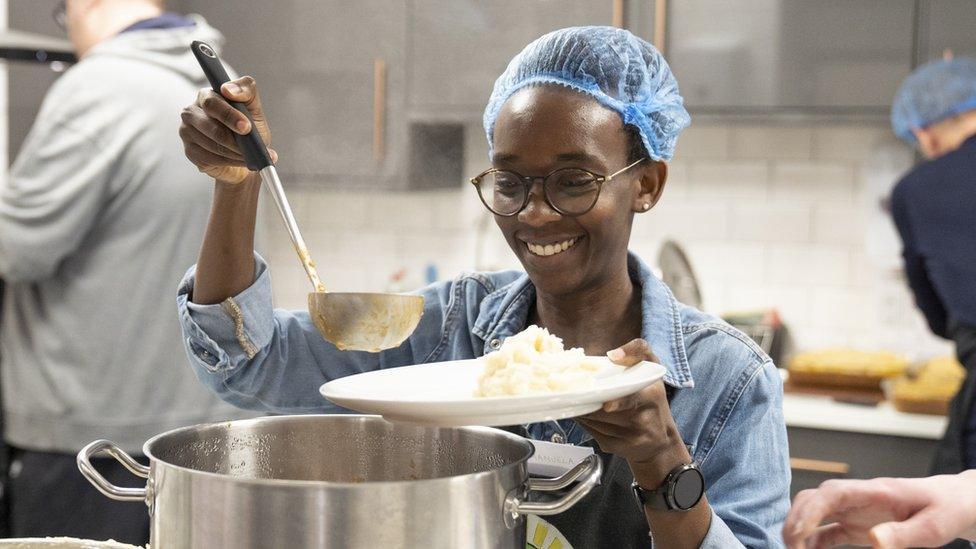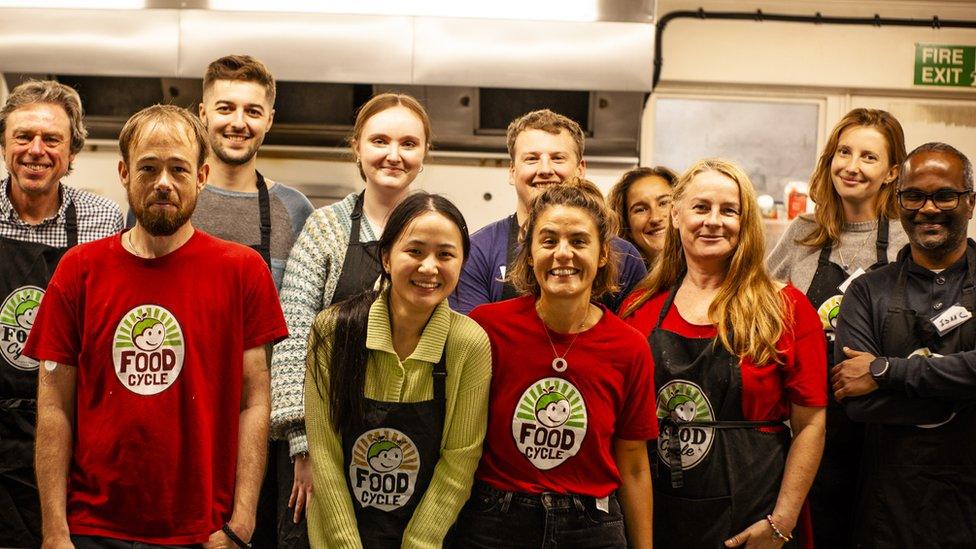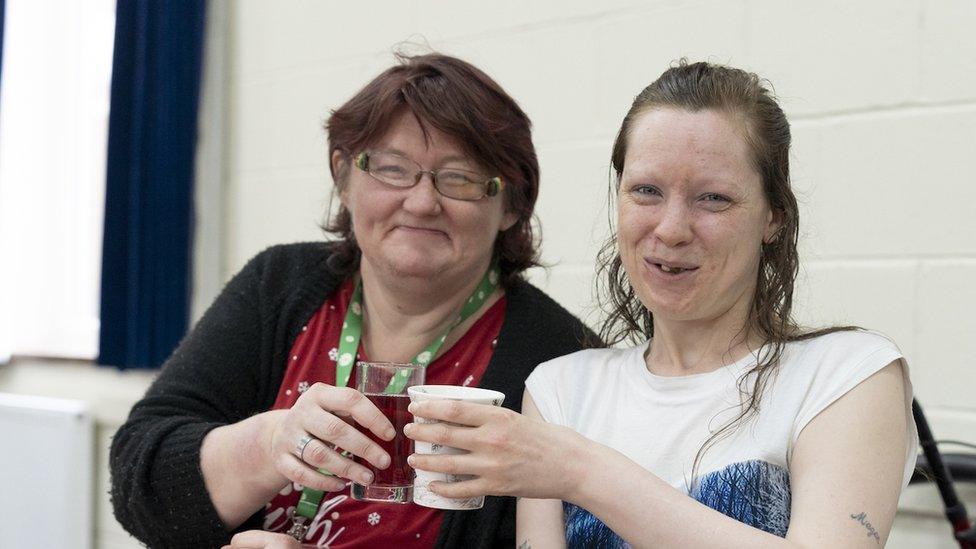Charity marks a year of free meals in Wolverhampton
- Published

FoodCycle Wolverhampton provides people with a free three course meal once a week
A charity is celebrating a year of serving people in Wolverhampton with free three-course meals every week.
FoodCycle Wolverhampton sources surplus food from supermarkets, grocery shops, and markets to combat food waste.
They invite members of the community to Wesleyan Holiness Church on Merridale Lane every Wednesday for a hot dinner.
"FoodCycle isn't a food bank. We invite people to come and sit with us, around a table, and enjoy a hot, nutritious meal," the charity's Lucy Self said.
Around 25 people utilise the city service every week.
FoodCycle has been operating nationwide for 15 years to try and tackle food poverty, food waste, and loneliness.

FoodCycle Wolverhampton has a bank of 55 volunteers
The Wolverhampton service has a bank of 55 volunteers, with around 10 people working on each shift.
Pamela McKenzie asked FoodCycle to visit her church, which she has attended for 30 years, after hearing about it on the news.
She is now a project leader at the Wolverhampton base.
"Some people say they live by themselves so they come for company, to talk to people. They're lonely," she said.
"It's about welcoming people and engaging with them."
One of FoodCycle's primary goals is to try and reduce food waste by sourcing edible surplus food in "a safe and responsible way".

The charity welcomes around 25 people every week
"Surplus food is food which is fit for human consumption, but has no commercial value for the retailer," Ms Self said.
"This food, which may ultimately go to waste, may have become damaged in transit, might be past its 'best before' date or might have been over-ordered. It's still perfectly good food, and we put it to good use."
FoodCycle only serves meat-free food due to practical and legal hurdles around obtaining and serving surplus meat and fish.
"This makes our meals accessible to people of all cultures and religions," Ms Self added.

Follow BBC West Midlands on Facebook, external, X, external and Instagram, external. Send your story ideas to: newsonline.westmidlands@bbc.co.uk, external